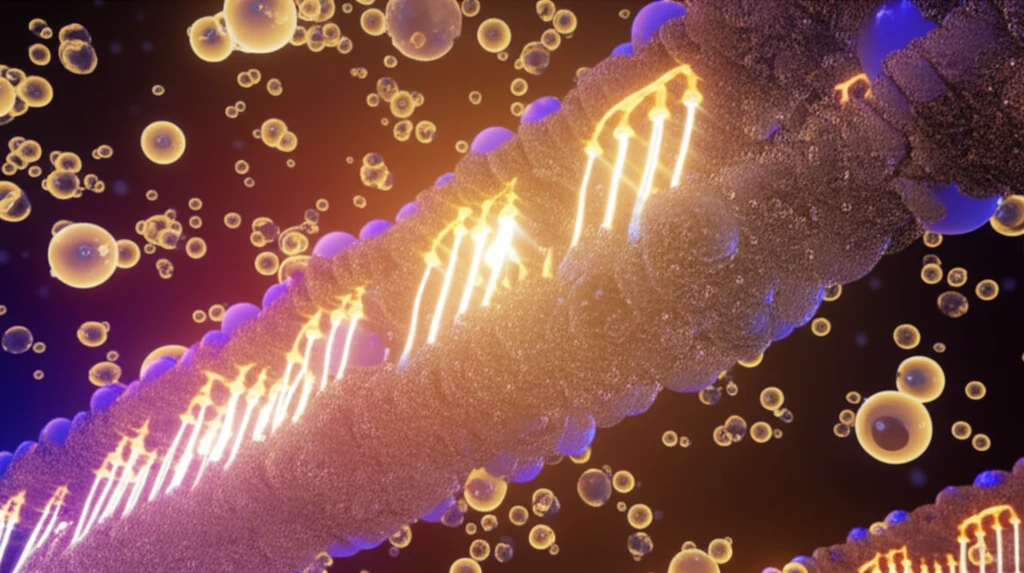
Unlock Cellular Secrets: How Sterols Fine-Tune Your Body's Electrical Channels
"Delve into the groundbreaking research uncovering how cholesterol and related molecules influence the function of voltage-gated potassium channels, essential for cell communication and overall health."
In the intricate machinery of our cells, tiny channels act as gatekeepers, controlling the flow of ions and orchestrating electrical signals. These voltage-gated potassium channels (Kv channels) are vital for nerve impulses, muscle contractions, and maintaining the delicate balance of cellular functions. But what if these channels could be fine-tuned by something as simple as cholesterol?
A groundbreaking study published in BBA - Molecular and Cell Biology of Lipids sheds light on the profound influence of sterols—a class of molecules that includes cholesterol—on the behavior of Kv channels. Researchers have discovered that sterols don't just passively reside within cell membranes; they actively modulate the function of these critical channels, impacting everything from nerve excitability to cellular signaling.
This article will guide you through the fascinating world of sterol-channel interactions, revealing how these molecules target specific regions of Kv channels, altering their gating mechanisms and ultimately affecting cellular health. Whether you're a seasoned scientist or a curious health enthusiast, prepare to unlock the cellular secrets that could revolutionize our understanding of disease and pave the way for innovative therapies.
The Cholesterol Connection: Targeting the Electrical Gates

Cholesterol, an essential component of plasma membranes, is known to regulate membrane fluidity and interact with membrane proteins. This study zeroes in on how cholesterol and its related sterols specifically influence voltage-gated potassium channels (Kv channels). These channels are crucial for generating electrical signals in cells, and any disruption to their function can have significant health consequences.
- Sterols alter pore opening: They influence how easily the channel opens to allow potassium ions to pass through.
- Sterols slow current kinetics: They affect the speed at which the channel opens and closes.
- Sterols reduce single-channel conductance: They reduce the amount of ions passing through the channel when it is open.
- Sterols change raft vs. non-raft distribution of Kv channels: They affect the location of the channels within the cell membrane.
- Sterols directly target the pore: Rather than the voltage-sensing machinery of Kv channels.
Implications for Health: From Heart to Brain
The discovery that sterols can fine-tune Kv channels has broad implications for understanding and treating various health conditions. Kv channels are found throughout the body, playing critical roles in heart function, brain activity, and immune responses. Disruptions in their function have been linked to arrhythmias, epilepsy, and autoimmune disorders. By understanding how sterols modulate these channels, scientists can potentially develop new therapeutic strategies to restore proper channel function and alleviate disease symptoms. This research opens doors to targeted therapies that harness the power of sterols to maintain cellular health.
